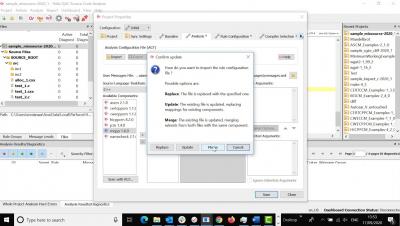Systems | Development | Analytics | API | Testing
Testing
The latest News and Information on Software Testing and related technologies.
How to Upload Results to the Dashboards
Creating Digital Confidence with Test Automation
[TUTORIAL] Smart Troubleshooting Features with Katalon Studio
Appium vs Selenium - Architecture, Functionality, Applications, and Everything in Between
It’s perhaps difficult to remember life before smartphones. Today, mobile phones have transformed dramatically to become the information and communication hub fundamental to modern life: from paying for your next meal to tracking your sleep habits. This explosion of the mobile industry puts testing professionals under pressure to keep up with speed without sacrificing their mobile apps’ quality.
How To Load Test Your PHP Website
It is important that web applications are optimized to ensure the best application performance for the end user. PHP developers can improve website performance by load testing their PHP website. Load testing checks the rigidity, speed, interoperability of the system, and the performance and the reliability of a PHP website.
Which is the Execution Order of Elements in Apache JMeter?
The execution order of the elements in an Apache JMeter performance test plan is very important, it helps understand the timeline of events and how your test will behave. Make sure that you understand every JMeter element before adding it to your test plan, this will help create faster performance tests and not jump into various errors.
Checklist For Mobile App Testing
Every mobile application, irrespective of its category, has a common goal of creating an impeccable user experience. App users want to see something new and innovative. And even though the great user experience is the most important, it only comes with quality. To ensure quality, mobile app testing is essential. In this blog, we will discuss a step-by-step mobile app testing checklist.
[Webinar] Elevate Your Test Troubleshooting with Katalon Studio 7.8
Best website load testing services
Website load testing services determine how websites deal with online traffic. Too often, people equate it with performance testing. However, load testing is just a type of website performance testing. Other types of performance testing include endurance testing, volume testing, scalability testing, spike testing, and stress testing. In website deployment, it is common that transactions may fail and systems crash. It is due to concurrent demands on the website and adjustment over resources.











